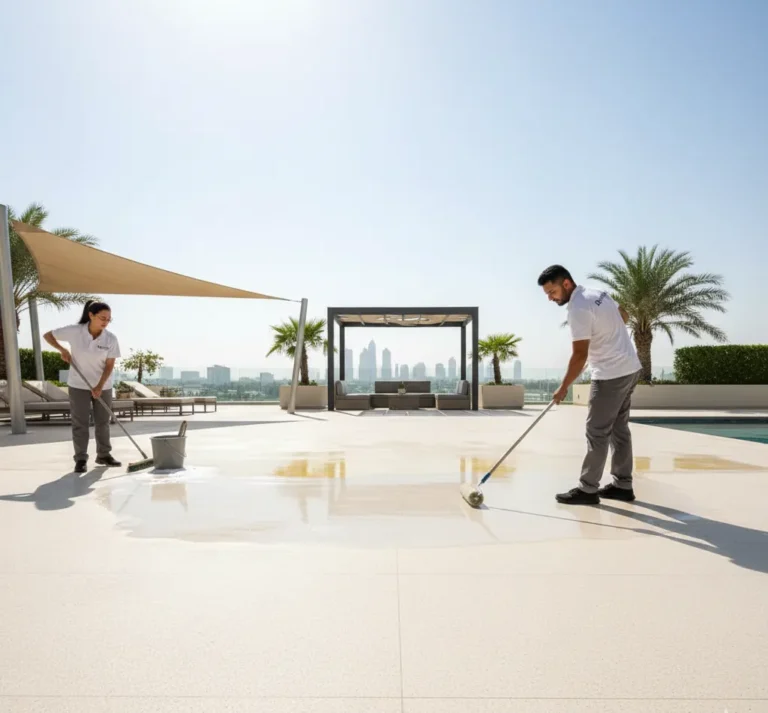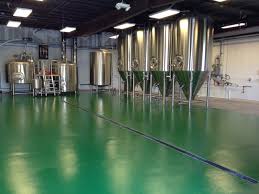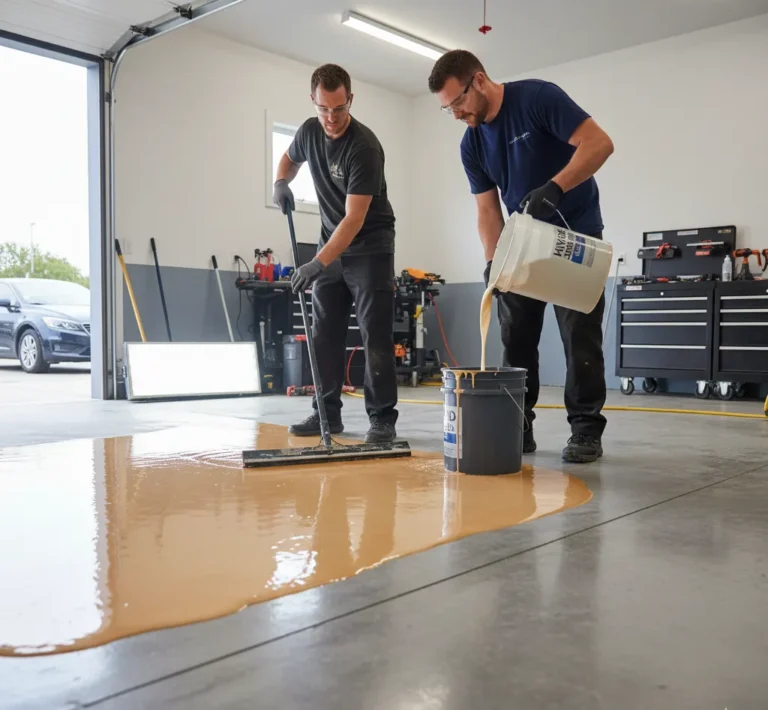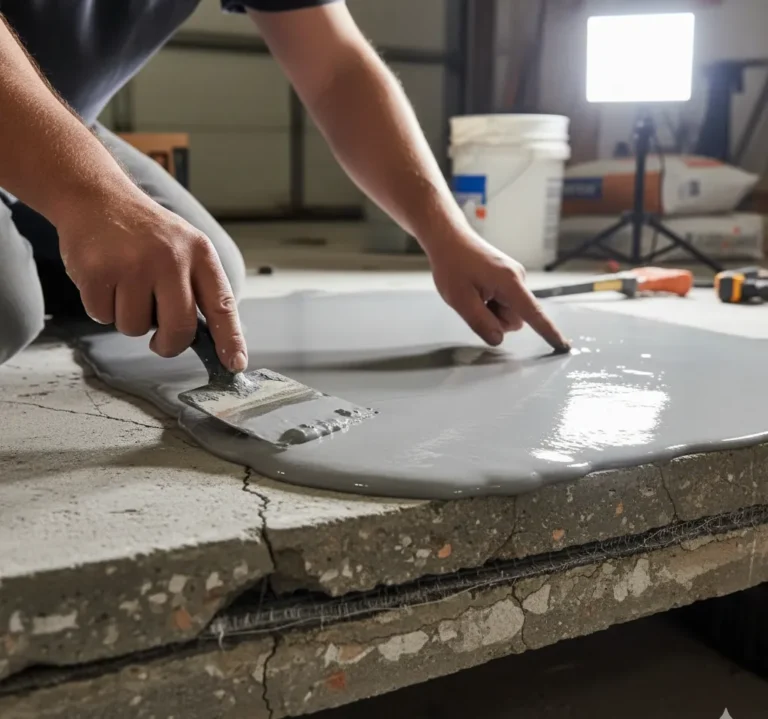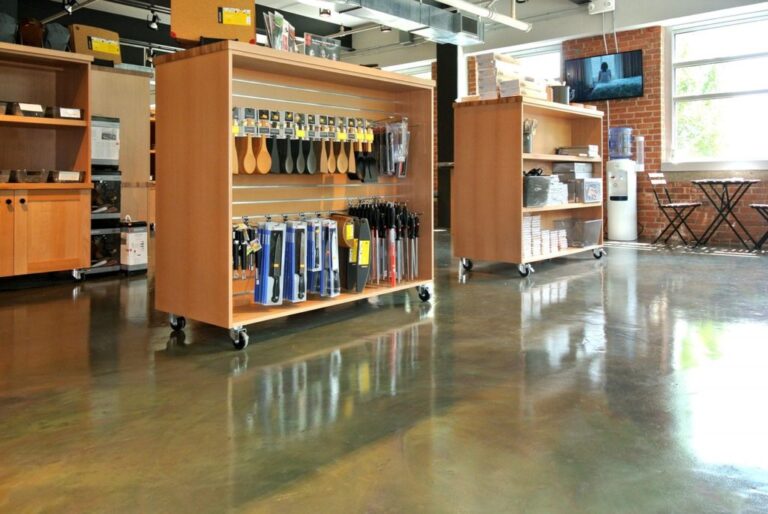Resinous Flooring Systems: The Ultimate Guide
Resinous flooring is a seamless, durable flooring solution made from a mixture of resin and hardeners. This combination creates a hard plastic-like surface that is both strong and visually appealing. Resinous flooring is known for its ability to withstand heavy traffic and harsh conditions, making it a popular choice for industrial and commercial spaces.
Types of Resinous Flooring Materials
There are several types of resinous flooring materials, each with unique properties. Epoxy, urethane, and methyl methacrylate (MMA) are the most common. Epoxy is known for its strength and versatility, while urethane offers superior chemical resistance. MMA is prized for its rapid curing time, making it ideal for projects with tight deadlines.
Benefits of Resinous Flooring Systems
Resinous flooring systems offer numerous benefits, including durability, ease of maintenance, and aesthetic versatility. They are resistant to chemicals, stains, and abrasions, making them suitable for various environments. Additionally, resinous floors can be customized with different colors and patterns to match any design preference.
- Seamless and easy to clean
- Resistant to chemicals and abrasions
- Customizable in color and design
Epoxy Flooring: A Popular Resinous Option
Characteristics of Epoxy Flooring
Epoxy flooring is a popular choice due to its strength and durability. It consists of a resin and hardener that, when combined, form a rigid plastic material. This flooring type is resistant to wear and tear, making it ideal for high-traffic areas.
Applications in Various Industries
Epoxy flooring is used in a wide range of industries, from manufacturing plants to commercial kitchens. Its ability to withstand heavy machinery and chemical spills makes it a preferred choice for industrial settings. Additionally, its aesthetic appeal is suitable for retail and office spaces.
Durability and Longevity
One of the standout features of epoxy flooring is its longevity. When properly installed and maintained, epoxy floors can last for decades without showing signs of wear. This makes them a cost-effective solution for businesses looking to invest in long-term flooring options.
- Long-lasting and durable
- Suitable for high-traffic areas
- Resistant to chemical spills
Urethane Flooring: High-Performance Resinous Solution
Advantages of Urethane Flooring
Urethane flooring offers several advantages, including superior chemical resistance and flexibility. Unlike epoxy, urethane can withstand thermal shock, making it ideal for environments with fluctuating temperatures. Its flexibility also allows it to absorb impacts without cracking.
Chemical and Abrasion Resistance
Urethane flooring is highly resistant to chemicals and abrasions, making it suitable for environments where spills and heavy equipment are common. This resistance ensures that the flooring maintains its appearance and functionality over time.
Customization Options
Urethane flooring can be customized to meet specific design and functional requirements. It is available in various colors and finishes, allowing businesses to create a unique look that aligns with their brand identity.
- Resistant to thermal shock
- Flexible and impact-resistant
- Customizable in color and finish
Methyl Methacrylate (MMA) Flooring: Rapid-Curing Resinous System
Fast Installation and Curing Time
Methyl methacrylate (MMA) flooring is known for its rapid installation and curing time. This makes it an excellent choice for projects with tight deadlines, as it can be installed and ready for use in a matter of hours.
Temperature Resistance
MMA flooring is highly resistant to temperature changes, making it suitable for environments with extreme heat or cold. This resistance ensures that the flooring remains stable and functional, regardless of the surrounding conditions.
Seamless Integration
MMA flooring provides a seamless surface that is easy to clean and maintain. Its smooth finish prevents dirt and bacteria from accumulating, making it a hygienic choice for healthcare and food processing facilities.
- Quick installation and curing
- Resistant to temperature fluctuations
- Seamless and hygienic surface
Resinous Flooring Performance and Design
Aesthetic Versatility
Resinous flooring offers aesthetic versatility, allowing for a wide range of design options. It can be customized with different colors, patterns, and textures to create a unique look that complements any space.
Slip-Resistant Properties
Safety is a key consideration in flooring, and resinous flooring provides excellent slip-resistant properties. This makes it a safe choice for areas prone to spills or moisture, reducing the risk of accidents.
Load-Bearing Capacity
Resinous flooring is designed to withstand heavy loads, making it suitable for industrial environments where heavy machinery is used. Its load-bearing capacity ensures that the flooring remains intact and functional under pressure.
- Customizable design options
- Slip-resistant for safety
- Supports heavy loads
Resinous Flooring Applications
Industrial Facilities
Resinous flooring is ideal for industrial facilities due to its durability and resistance to chemicals and heavy machinery. It provides a safe and reliable surface that can withstand the demands of an industrial environment.
Commercial Spaces
In commercial spaces, resinous flooring offers a sleek and professional appearance. Its customizable design options allow businesses to create a unique look that aligns with their brand identity.
Healthcare Environments
Healthcare environments require flooring that is hygienic and easy to clean. Resinous flooring provides a seamless surface that prevents the accumulation of dirt and bacteria, making it a suitable choice for hospitals and clinics.
Educational Institutions
Educational institutions benefit from the durability and low maintenance of resinous flooring. It can withstand the wear and tear of high foot traffic, ensuring a long-lasting and cost-effective solution for schools and universities.
- Suitable for industrial and commercial use
- Hygienic for healthcare settings
- Durable for educational institutions
Installation Process of Resinous Flooring Systems
Surface Preparation
Proper surface preparation is crucial for the successful installation of resinous flooring. This involves cleaning and repairing the substrate to ensure a smooth and even surface for the resin to adhere to.
Application Techniques
The application of resinous flooring involves mixing the resin and hardener, then applying it to the prepared surface. This process requires precision and expertise to ensure a seamless and durable finish.
Curing and Finishing
Once applied, the resinous flooring must be allowed to cure and harden. This process can take several hours to days, depending on the type of resin used. After curing, the floor is finished with a protective topcoat to enhance its durability and appearance.
- Clean and repair substrate
- Precise application of resin
- Curing and protective finishing
Maintenance and Care for Resinous Flooring
Cleaning Procedures
Regular cleaning is essential to maintain the appearance and functionality of resinous flooring. This involves sweeping and mopping the surface to remove dirt and debris, as well as using appropriate cleaning agents to prevent damage.
Repair and Touch-Ups
Over time, resinous flooring may require repairs or touch-ups to address minor damages or wear. This involves filling in cracks or chips and reapplying the topcoat to restore the floor’s appearance and performance.
Long-Term Preservation
To ensure the longevity of resinous flooring, it is important to follow proper maintenance procedures and address any issues promptly. This includes regular inspections and timely repairs to prevent further damage.
- Regular cleaning and maintenance
- Address minor damages promptly
- Follow proper preservation procedures
Choosing the Right Resinous Flooring System
Factors to Consider
When choosing a resinous flooring system, several factors should be considered, including the intended use, environmental conditions, and budget. These factors will help determine the most suitable type of resinous flooring for a specific application.
Customization Options
Resinous flooring offers a range of customization options, allowing businesses to create a unique look that aligns with their brand identity. This includes choosing colors, patterns, and finishes that complement the overall design of the space.
Professional Consultation
Consulting with a professional flooring expert can help ensure the successful selection and installation of a resinous flooring system. Professionals can provide valuable insights and recommendations based on the specific needs and requirements of the project.
- Consider use, environment, and budget
- Customize colors and finishes
- Seek professional advice
Cost Considerations for Resinous Flooring
Initial Investment
The initial investment for resinous flooring can vary depending on the type of resin used and the complexity of the installation. While the upfront cost may be higher than traditional flooring options, the long-term benefits often outweigh the initial expense.
Long-Term Value
Resinous flooring offers long-term value due to its durability and low maintenance requirements. Its longevity reduces the need for frequent replacements, making it a cost-effective solution for businesses.
Return on Investment
Investing in resinous flooring can provide a significant return on investment by enhancing the appearance and functionality of a space. Its durability and aesthetic appeal can also increase the value of a property.
- Higher initial cost
- Long-term durability and value
- Enhances property value
Innovations in Resinous Flooring Technology
Advanced Formulations
Recent advancements in resinous flooring technology have led to the development of advanced formulations that offer improved performance characteristics. These formulations provide enhanced durability, chemical resistance, and aesthetic options.
Improved Performance Characteristics
Innovations in resinous flooring have resulted in improved performance characteristics, such as increased flexibility and impact resistance. These improvements make resinous flooring suitable for a wider range of applications and environments.
Sustainable Options
Sustainability is a growing trend in the flooring industry, and resinous flooring is no exception. New formulations are being developed with sustainable materials and low-VOC content, reducing their environmental impact.
- Advanced and durable formulations
- Improved flexibility and resistance
- Sustainable and eco-friendly options
Resinous Flooring vs. Traditional Flooring Options
Comparison with Concrete
Resinous flooring offers several advantages over traditional concrete flooring, including enhanced durability and aesthetic options. Unlike concrete, resinous flooring is resistant to chemicals and stains, making it a more versatile choice.
Advantages over Tile and Vinyl
Compared to tile and vinyl, resinous flooring provides a seamless and easy-to-clean surface. Its durability and resistance to wear make it a more reliable option for high-traffic areas.
Performance Against Hardwood
While hardwood flooring offers a classic look, resinous flooring provides superior durability and resistance to moisture and chemicals. This makes it a more practical choice for environments where spills and heavy use are common.
- More durable than concrete
- Seamless and easy to clean
- Resistant to moisture and chemicals
Safety Features of Resinous Flooring Systems
Fire Resistance
Resinous flooring systems are designed to be fire-resistant, providing an added layer of safety in environments where fire hazards are a concern. This resistance helps prevent the spread of flames and reduces the risk of fire-related damage.
Chemical Containment
The chemical resistance of resinous flooring makes it suitable for environments where spills and leaks are common. This containment prevents chemicals from seeping into the substrate, protecting the integrity of the flooring and the environment.
Anti-Microbial Properties
Resinous flooring can be formulated with anti-microbial properties, making it a hygienic choice for healthcare and food processing facilities. These properties help prevent the growth of bacteria and mold, ensuring a clean and safe environment.
- Fire-resistant for safety
- Contains chemical spills
- Anti-microbial for hygiene
FAQs
What are the advantages of resinous flooring?
Resinous flooring offers several advantages, including durability, ease of maintenance, and aesthetic appeal. It is resistant to chemicals, stains, and abrasions, making it suitable for various environments. Additionally, resinous floors can be customized with different colors and patterns to match any design preference.
How long does resinous flooring last?
Resinous flooring is known for its longevity, often lasting for decades when properly installed and maintained. Its durability makes it a cost-effective solution for businesses looking to invest in long-term flooring options.
Is resinous flooring environmentally friendly?
Resinous flooring can be environmentally friendly, depending on the materials used. Some resinous flooring systems are made with sustainable materials and low-VOC formulations, reducing their environmental impact. Additionally, their durability and long lifespan contribute to sustainability by reducing the need for frequent replacements.
